Christian Ending Explained: Explanation And Analysis Of The Ending Of The Sky Original Tv Series
Fluidity, ambiguity, ambivalence, call it what you want but call it, because the season finale of Christian, Sky Original TV series with Edoardo Pesce and Claudio Santamaria (and not only), focuses on indeterminacy and this has its importance. Indeterminacy as the guiding star of an agile and creative writing/direction, which colors the canvas of a story naturally predisposed to contamination with nuanced tones. Of genres, of atmospheres, of personalities.

Life is complicated, a lot. This is true for everyone, especially for Christian (Edoardo Pesce). Hitter in the pay of a neighborhood boss in the concrete nest of the City-Palace, so it is easy to go from a curious annoyance in the hands to the stigmata, and from these to a whirlwind of wonders to turn the head of the most consummate Messiah. Arriving at the end of the season, Christian must measure the ever-deeper impact of his “gifts” on the life and spirit of the community around him. The series mixes the spirituality and rawness of neighborhood life, gloom and humor. Even in the end, he does not forget to broaden his gaze far beyond his bulky protagonist, it is not just a matter of important physicality, to understand something of the path and the interiority of his many protagonists.
Christian is created by Valerio Cilio, Roberto “Saku” Cinardi (his idea) and Enrico Audenino, freely inspired by Stigmate, a graphic novel by Piersanti/Mazzotti. Directed by Stefano Lodovichi and Roberto “Saku” Cinardi. From 28 January 2022 on Sky Atlantic, then on demand on Sky and streaming on NOW. Produced by Sky and Lucky Red in partnership with Newen Connect.
Christian Ending Explained: The Grand Finale Is An Episode Ideally Divided Into Two Parts
The final episode of the cycle of six that structures Christian ‘s narrative arc is entitled Why Pink Floyd? and is cut in two with the hatchet, right in the middle of the ford. In fact, if it is true that the aim of the series is not to limit itself to showing the incredible things that the protagonist is capable of, but to verify the consequences on the material and intimate life of the inhabitants of the City-Palace, then the final episode confirms and relaunch this perspective.
A last chapter ideally divided into two parts, the first which puts most of the main characters, touched in one way or another by Christian’s intervention, facing the possibility of a choice. A second that examines how why and what they choose. With what consequences.
Christian’s Characters In The First Half Of The Grand Finale
Where are Christian ‘s characters in the first part of the grand finale? What challenges await them? Let’s find out together with this short list. Italy (Lina Sastri): Christian’s adoptive mother, receives the child from the mysterious Biondo (Giulio Beranek) who had so much part in Matteo’s life. She regained her clarity thanks to Christian’s intervention, she must decide whether to continue living with her eyes open, denouncing Lino’s crimes, or to continue life as usual.
Rachele (Silvia d’Amico): Christian’s first “gift”, who assists in his miraculous works, savors the scent of rebirth and begins to measure the impact and quality of their bond. Lino (Giordano De Plano): the cruel boss of the City-Palace. Very close to Christian, he does not appreciate his gifts because they hold a hope that weakens his authority. His is the morally more problematic crossroads. To succumb or revive his blood power?
Michela (Romana Maggiora Vergano): a bulky inheritance from a previous crime by Lino, the girl enters a secret relationship with Davide (Antonio Bannò), the boss’s son. Most forbidden love, Lino asks Christian to kill her, but he refuses her and encourages David to take her away and leave. David chooses to be faithful to her father and gets rid of her. Christian brings Michela back to life in her first public miracle. The girl, having revived her, comes to the house of an astonished Davide asking him to take her away. At the sea.
Matteo (Claudio Santamaria): the Vatican emissary who investigates the supernatural is one step away from the truth and is following Christian like a shadow. He manages to put some order into Father Klaus’s (Ivan Franek) questionable plan to curb the advance of the Antichrist. He finds traces of Biondo’s passage in Christian’s past. His investigation, intimately, is an attempt to change the batteries of a frayed faith. For this, he decides to subject Christian to the decisive test.
The Second Part Of The Finale
A very important idea in Christian is that there is nothing really predetermined. Even if a helping hand, bending every law of nature, pulls you out of the dark and grants you the possibility of a second chance, what you will do from that point forward will depend on you. The outcome of this choice has an ambiguous scent, it mixes good and evil in a problematic way. Even when the horizon seems clear, something intervenes to soil the picture.
Italy is well aware of this, choosing to denounce Lino’s crimes publicly, offering him forgiveness and the possibility of repentance. He will pay with his life. Lino, confronted with the exit strategy of a providential redemption, does not leave but rather doubles his criminal plan. He kills the woman and makes her body disappear to prevent Christian from bringing her back to life, then shoots him as well. Elsewhere, the scenario is equally ambiguous. Michela takes her life in hand with an emancipation that hides a trap: she convinces Davide to follow her by offering him a seductive triumph of love that actually hides a slow and painful revenge. Rachel literally flounders in the folds of a toxic bond. Her need for Christian is so overwhelming that she begins to wonder if she has simply found a way to replace one addiction with another. Even Tomei, Francesco Colella, the cynical doctor self-exiled to the City-Palace to pay for past sins, touches the evidence of one miracle after another. But in the face of the impossible, beyond a slight astonishment on his face, his attitude does not change.
And Christian? After having wiped out the ghosts that oppress Matteo with a sweep of the sponge, curing his son’s sick eyes, the protagonist finds himself with a bullet in his stomach, courtesy of Lino. Catapulted into a dimension suspended halfway between life and death, ours finally can have a nice chat with Biondo. Emissary of an inscrutable will, in full MasterChef modality, Blond educates Christian to ambiguity by means of an unmissable metaphor whose protagonist is the culinary architrave of humanity, the pillow.
It seems that the boundary between Heaven and Hell, Good and Evil, life and death is more fluid than one thinks. So, explains Biondo, keeping this in mind, what Christian has to do is to return to Earth, to start his Kingdom, starting with forgiving Lino. Because he, Christian, is different. In a perversely coherent way, Christian adheres to the task and above all, does not forget the ambiguity. Having found Lino, who in tears and on his knees asks for forgiveness, he pleases him. Happy ending? But not even for a dream because, in forgiving Lino, Christian breaks his neck and throws him into the void. Supreme fluidity, his first act as a guide of the City-Palace is a liberation and a murder. What will happen from his reign, whether it is of pure good, tending towards the Antichrist or a little of both, we will find out in the future. With the advent, or the non-advent, of a second season, many things will clear up in one way or another. If this is not ambiguity.


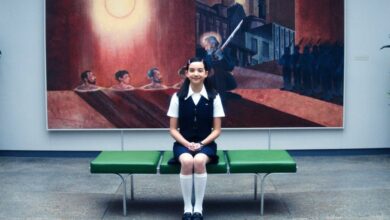
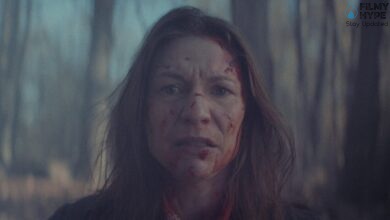
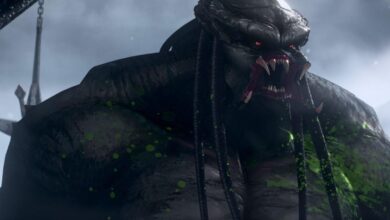
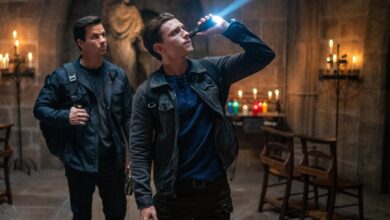
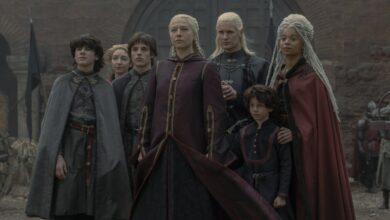
i just want to know if s2 coming or not
season 2 already has been released